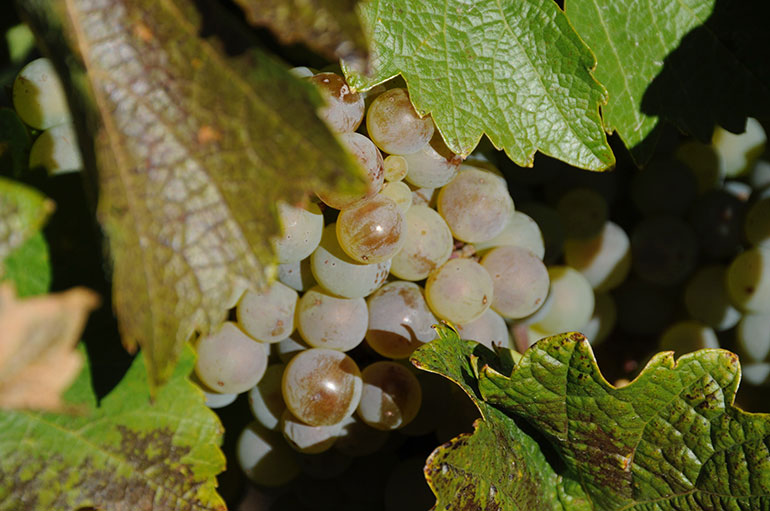Three professors named Researcher of the Year
UBC’s Okanagan campus is home to nearly 300 faculty researchers that are exploring some of the most urgent challenges, newest ideas and most ground-breaking technologies in the world.
The university this week named its 2019 Researchers of the Year. These prestigious annual prizes are awarded to the campus’ top researchers, with this year’s recipients recognized for their contributions to the development of innovative digital tools for marginalized communities, advances in sustainable energy and construction, and support for youth living with developmental disabilities and autism.
Awardees for 2019 are Associate Professor Jonathan Corbett in the category of social sciences and humanities, Professor Kasun Hewage in the category of natural sciences and engineering and Associate Professor Rachelle Hole in the category of health.
“This award recognizes outstanding UBCO faculty members who have carried out highly impactful work during their time at UBC,” says Vice-Principal, Research Philip Barker. “Professors Corbett, Hewage and Hole epitomize excellence in research and creative scholarship and are leaders in their respective fields and disciplines. Each of them works across multiple fields to help make the world a better place.”
Student researcher awards were also presented this year to master’s student Emily Giroux and doctoral student Katrina Plamondon.
About UBC Okanagan’s award-winning researchers
Social Sciences and Humanities Researcher of the Year: Associate Professor Jonathan Corbett
While the science and art of cartography may have ancient roots, Associate Professor Jonathan Corbett is a modern cartographer who is working to map out how digital multimedia technologies can help preserve and strengthen remote or marginalized communities.
He is one of the country’s leaders in bringing geoinfomatics to a web-based, community-facing, knowledge platform. His Geolive software uses an online map as a storytelling tool to help marginalized communities feel empowered and overcome social exclusion.
“His technological sophistication, coupled with his steadfast commitment to interdisciplinary and community-based research is what makes Dr. Corbett’s work so remarkable,” says Mike Evans, associate dean of research, graduate and post-doctoral studies in the Irving K. Barber School of Arts and Sciences at UBC Okanagan. “As a critical cartographer, he has made significant contributions to the field and to the communities with which he works.”
Natural Sciences and Engineering Researcher of the Year: Professor Kasun Hewage
Kasun Hewage is a professor of engineering and associate director with UBC’s Clean Energy Research Centre. He takes a holistic approach to investigating smart energy and construction sustainability. His expertise includes life cycle thinking based analysis of cost-effective and renewable energy production and green construction processes that are coordinated by cutting edge science and technologies.
Earlier this year, Hewage was named the inaugural FortisBC Smart Energy Chair, with the goal of investigating how energy use in BC can be optimized to reduce the province’s greenhouse gas footprint.
“Dr. Hewage’s research and scholarly contributions are extensive,” says Rehan Sadiq, associate dean of the School of Engineering at UBC Okanagan. “His work brings together academic and industry stakeholders to access the most pertinent facts required for sustainable building decisions, a crucial area of study as the world continues to strive towards sustainability.”
Health Researcher of the Year: Associate Professor Rachelle Hole
With a career spanning over 20 years working with individuals with physical and developmental disabilities, associate professor Rachelle Hole has focused her research on the socio-cultural practices that promote inclusion and equity. She has a particular interest in participatory research methods and strives to work directly with communities to empower participants.
Her most recent work, the Transiting Youth with Disabilities and Employment (TYDE) project, was awarded $1.3M in federal funding, involves working directly with community groups to help prepare youth living with intellectual disabilities or Autism Spectrum Disorder find meaningful employment later in life.
“Dr. Hole has a unique ability to pull groups together and to catalyze relationships between researchers, community members, and other stakeholders to build a shared vision,” says Evans. “She consistently generates policy-relevant insights and knowledge that shapes programs and practices – and indeed people’s lives – in very immediate ways.”
About UBC’s Okanagan campus
UBC’s Okanagan campus is an innovative hub for research and learning in the heart of British Columbia’s stunning Okanagan Valley. Ranked among the top 20 public universities in the world, UBC is home to bold thinking and discoveries that make a difference. Established in 2005, the Okanagan campus combines a globally recognized UBC education with a tight-knit and entrepreneurial community that welcomes students and faculty from around the world.
To find out more, visit: ok.ubc.ca.
The post Prizes awarded to UBC Okanagan’s top researchers appeared first on UBC Okanagan News.

